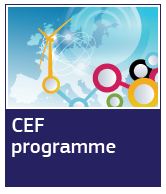The following funding opportunities have been announced. Please follow the links for more information.
Cross-platform production in digital media
Innovate UK is investing £4 million in collaborative R&D projects that stimulate innovation in the UK’s creative industries.
This call is aimed at projects that address convergence in digital media technologies. It covers film, television, online video, animation and video games, and includes pre- production, production and post- production processes, particularly for visual effects technologies.
Projects must be collaborative and led by a business. Small businesses could receive up to 70% of their eligible project costs, medium- sized businesses 60% and large businesses 50%.
Projects are expected to range in size from total costs of £300,000 to £750,000, although projects outside this range might be considered.
This is a two-stage competition that opens for applicants on 9 November 2015. The deadline for expressions of interest is at noon on 6 January 2016.
Call closes @ 23 Dec 2015, 12:00
Royal Society Leverhulme Trust Senior Research Fellowship
Royal Society and Leverhulme are inviting applications for Senior Fellows.
The award lasts between one term and one academic year. The applicant’s employing institution will be reimbursed for the full salary cost of a teaching replacement (up to the equivalent of the minimum point on the lectureship scale as paid by the host university). Research expenses up to a maximum of £2,500 are available to cover the costs of consumables, equipment, travel and communicating science.
Applications should be submitted through the Royal Society’s electronic grant application system (e-GAP).
Call closes @ 11 January 2016
Wellcome Trust PhD programmes for Clinicians
The Trust announced that it would be refreshing its personal support schemes for clinical academics via delivering their PhD training to clinicians exclusively through PhD programmes managed by institutions.
The competition represents a unique opportunity for institutions to be innovative, create and collaborative, and to consider how best to foster the cultural change that will support the next generation of clinical academics, from undergraduate through to senior levels.
important dates for this call:
Preliminary application deadline @25 January 2016,
Assessment of preliminary applications @ 8 March 2016
Full application deadline @ 29 April 2016
Assessment of full applications @ 20 July 2016
Wellcome Trust Investigator Awards
The Trust has combined its New Investigator and Senior Investigator Award schemes to create a single type of Investigator Award, providing all who hold established posts in eligible organisations with the same opportunity to obtain funding. Awards are worth a maximum of £3 million for up to seven years.
Next full application closing date@ 26 February 2016
Shortlisting of candidates by Expert Review Group @ April 2016
Shortlisted candidate interviews by Interview Panel @ 5-7 July 2016
Innovate UK, China–UK research and innovation bridges competition
Innovate UK, the Research Councils UK (RCUK) and the Ministry of Science and Technology (MoST) for the People’s Republic of China are to invest up to £16 million in collaborative research and development projects that propose new commercial solutions to critical challenges impacting the socio-economic growth and development of China in relation to energy, healthcare, urbanisation and agri-food.
Closing Date@ 23 Mar 2016, 12:00
If you are interested in submitting to any of the above calls you must contact RKEO with adequate notice before the deadline.
Please note that some funding bodies specify a time for submission as well as a date. Please confirm this with your RKEO Funding Development Officer
You can set up your own personalised alerts on Research Professional. If you need help setting these up, just ask your School’s/Faculty’s Funding Development Officer in RKEO or view the recent blog post here.
If thinking of applying, why not add notification of your interest on Research Professional’s record of the bid so that BU colleagues can see your intention to bid and contact you to collaborate.
 llenges impacting the socio-economic growth and development of China in relation to energy, healthcare, urbanisation and agri-food.The UK investment has been made possible through the Department for Business, Innovation and Skills-managed
llenges impacting the socio-economic growth and development of China in relation to energy, healthcare, urbanisation and agri-food.The UK investment has been made possible through the Department for Business, Innovation and Skills-managed 


 s
s number of information and networking events relating to ICT in the Horizon 2020 Work Programme 2016-2017 are taking place in Brussels over the coming weeks. Go to The
number of information and networking events relating to ICT in the Horizon 2020 Work Programme 2016-2017 are taking place in Brussels over the coming weeks. Go to The 
















 BU Professor has been invited to a series of plenary and invited lectures.
BU Professor has been invited to a series of plenary and invited lectures. Research reaching non-academic audiences
Research reaching non-academic audiences April’s Café Scientifique – Should we help machines understand and respond to our emotions?
April’s Café Scientifique – Should we help machines understand and respond to our emotions? Postgraduate Research Experience Survey (PRES) 2024 – 2 WEEKS LEFT
Postgraduate Research Experience Survey (PRES) 2024 – 2 WEEKS LEFT Working with The Conversation: online training session – Wednesday 8th May
Working with The Conversation: online training session – Wednesday 8th May Apply for up to £1,000 to deliver an event and take part in a national festival of public engagement with research
Apply for up to £1,000 to deliver an event and take part in a national festival of public engagement with research MSCA Postdoctoral Fellowships 2024
MSCA Postdoctoral Fellowships 2024 Horizon Europe News – December 2023
Horizon Europe News – December 2023